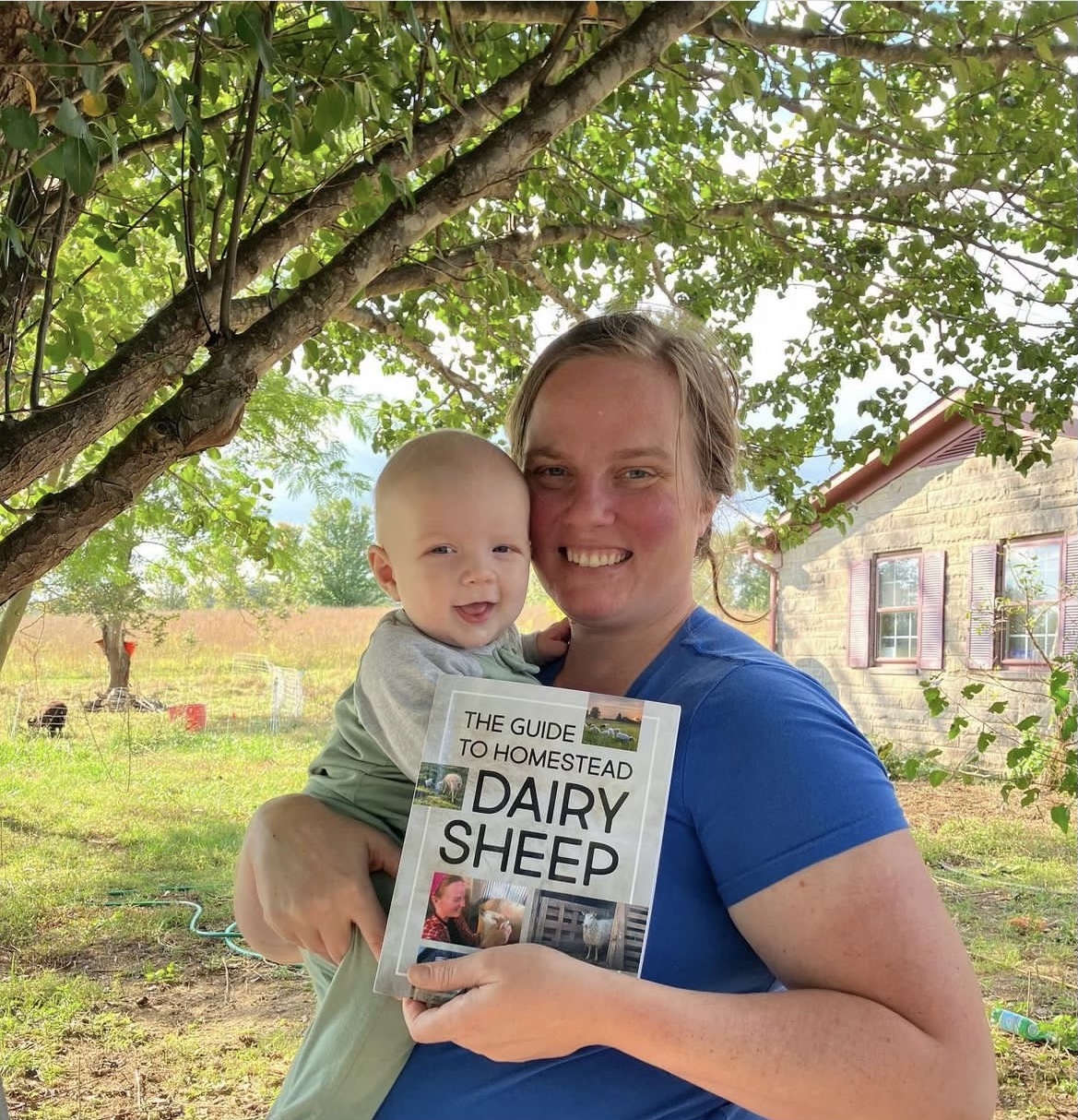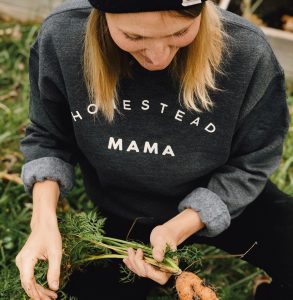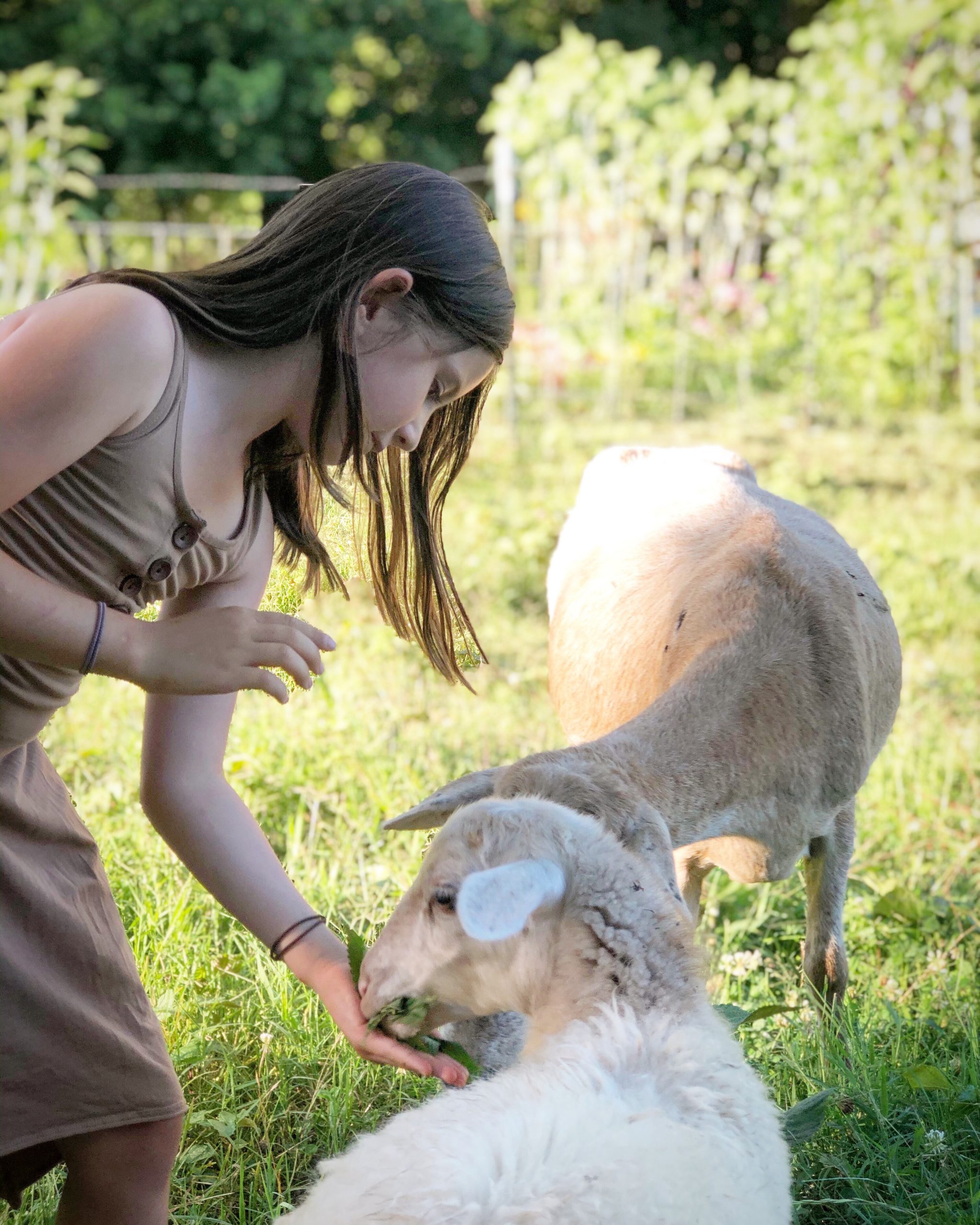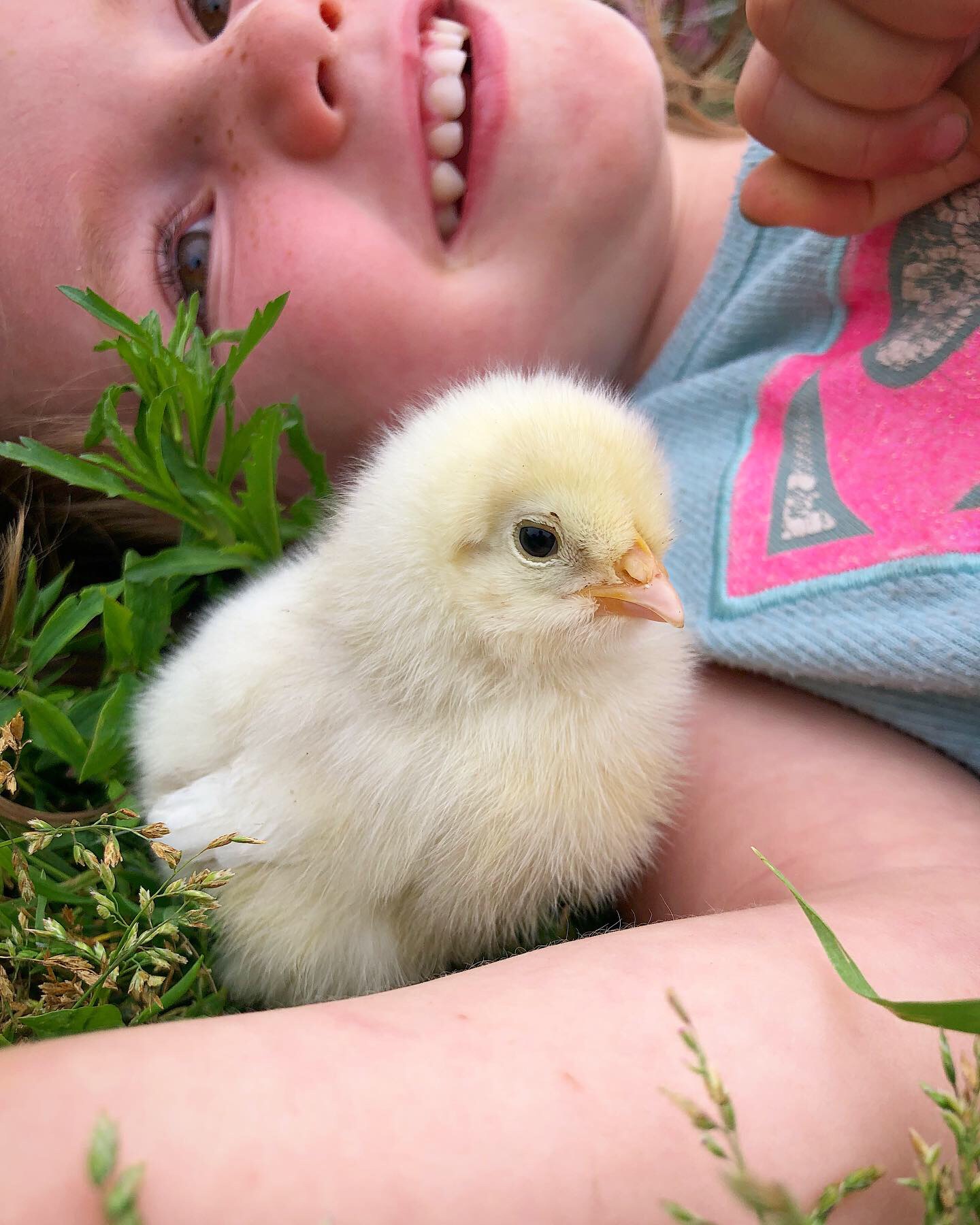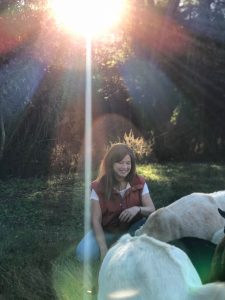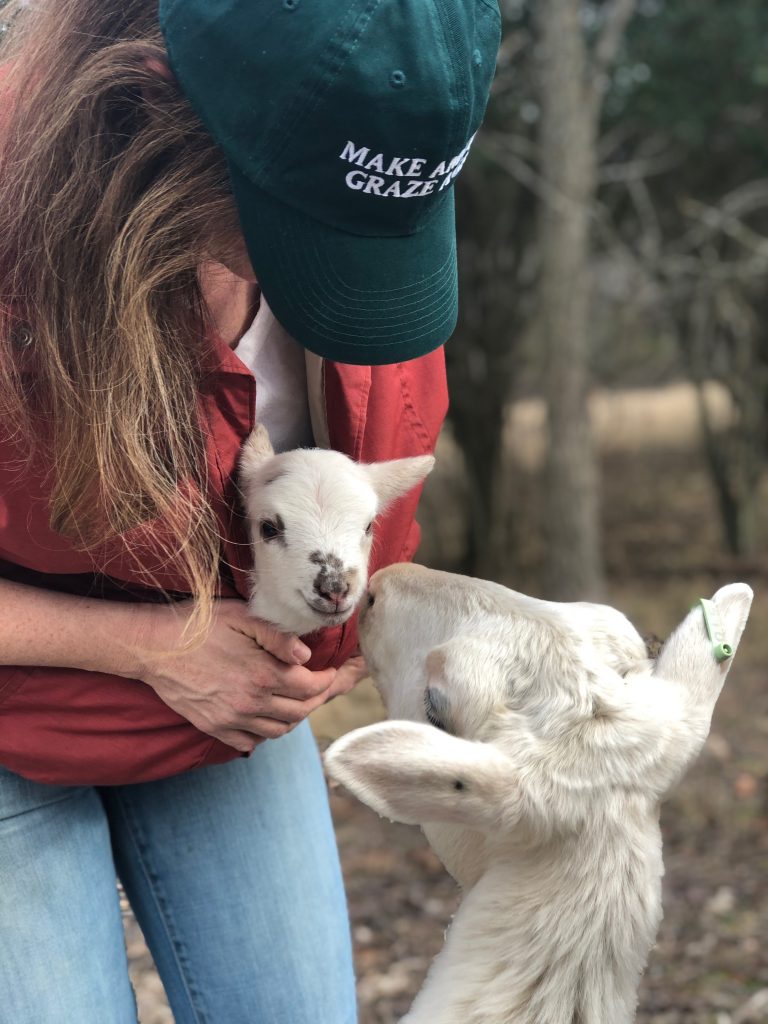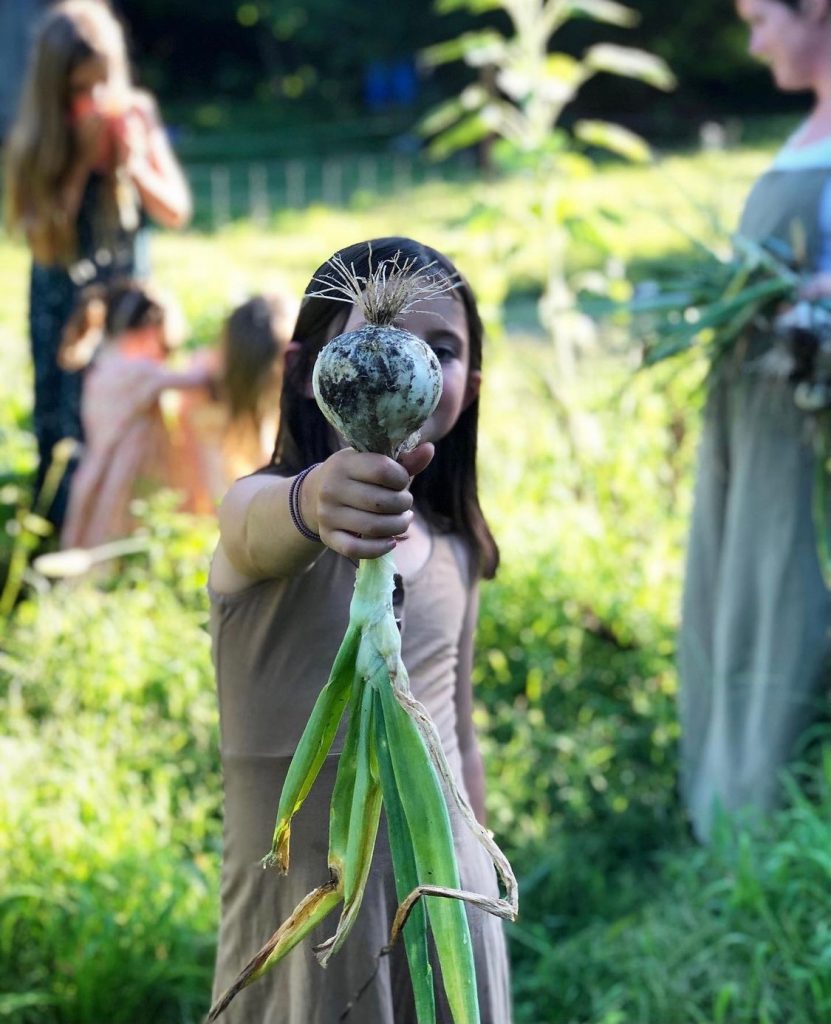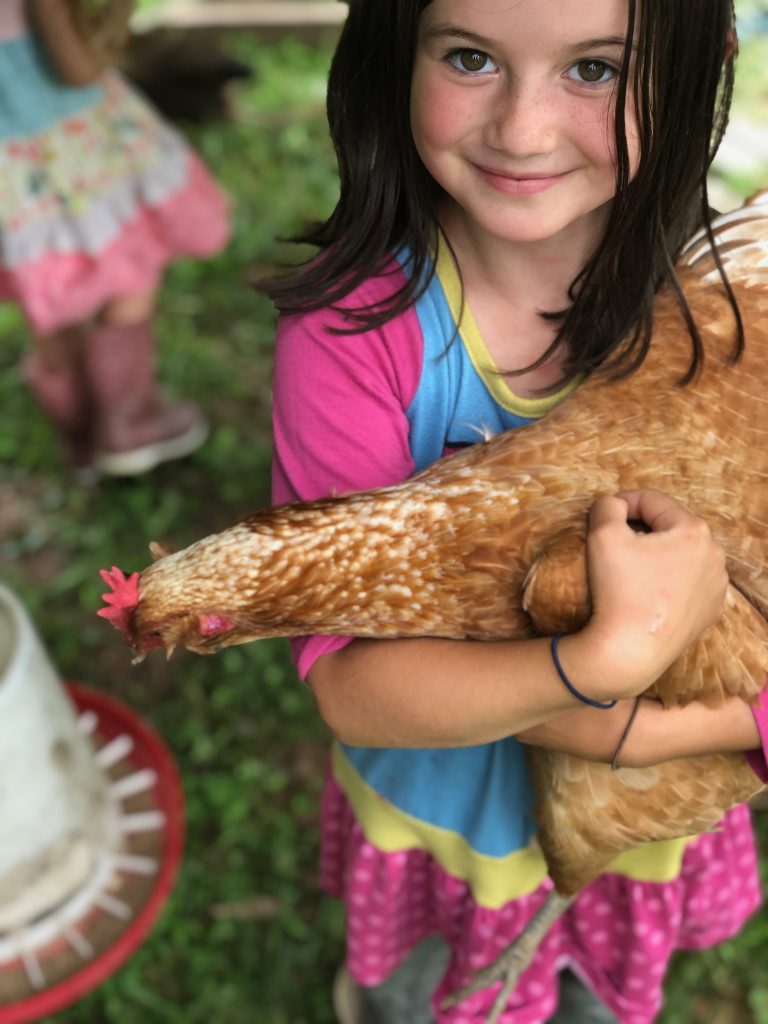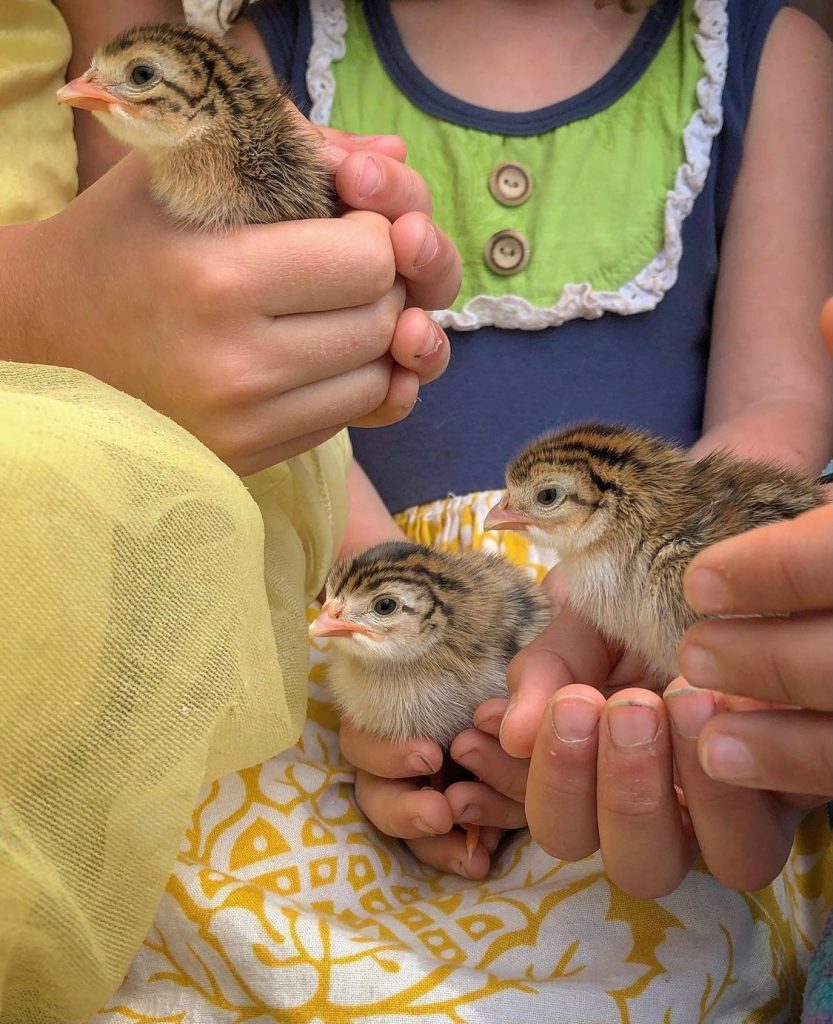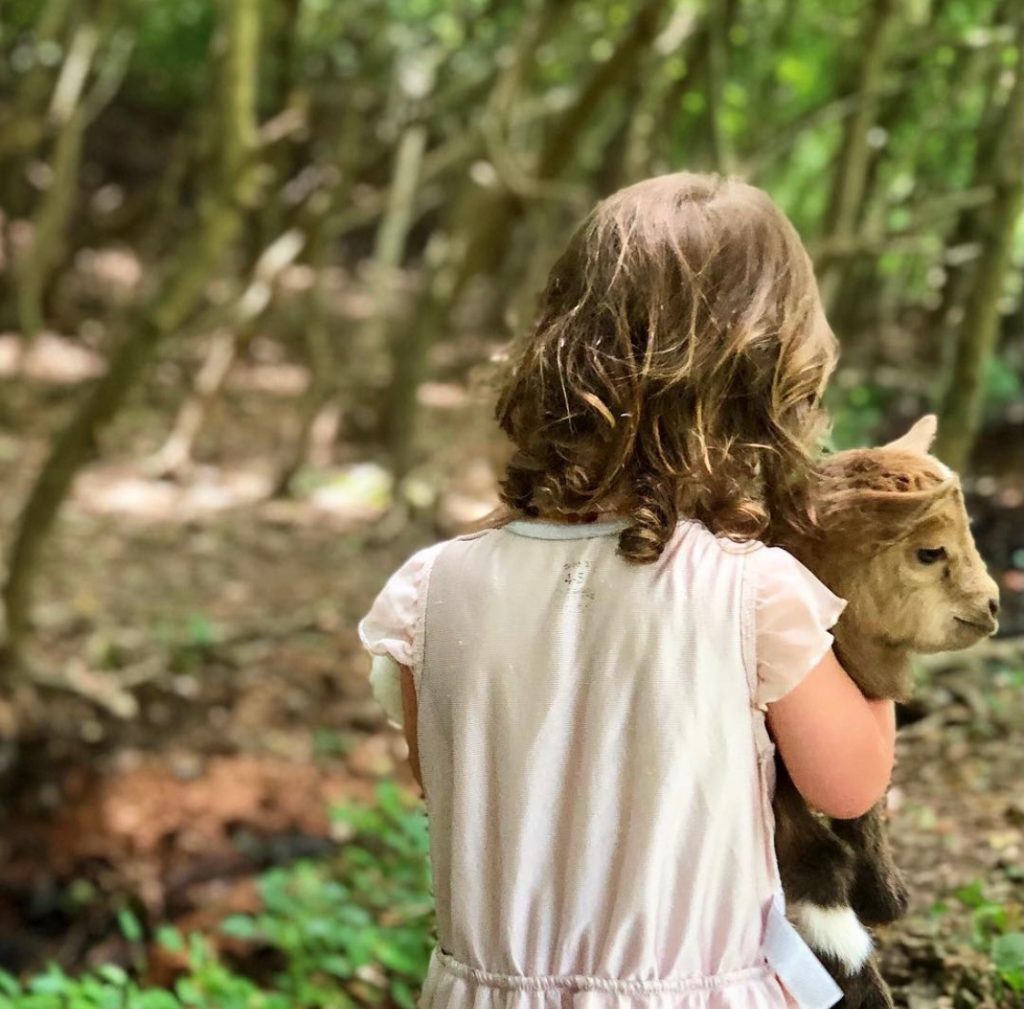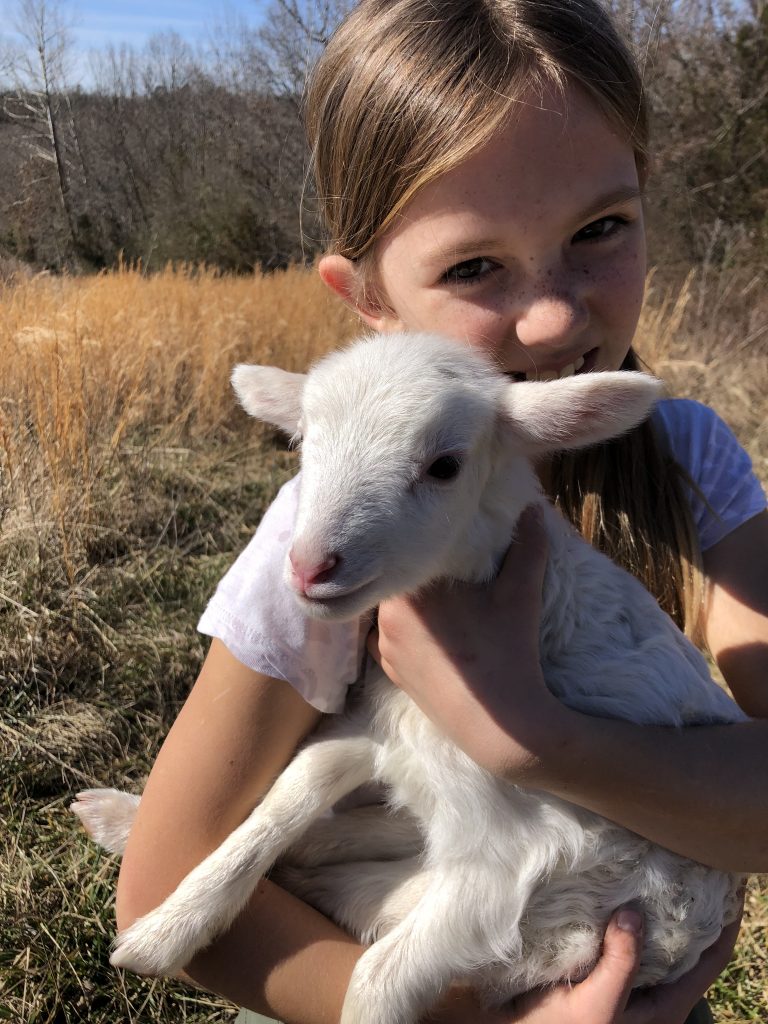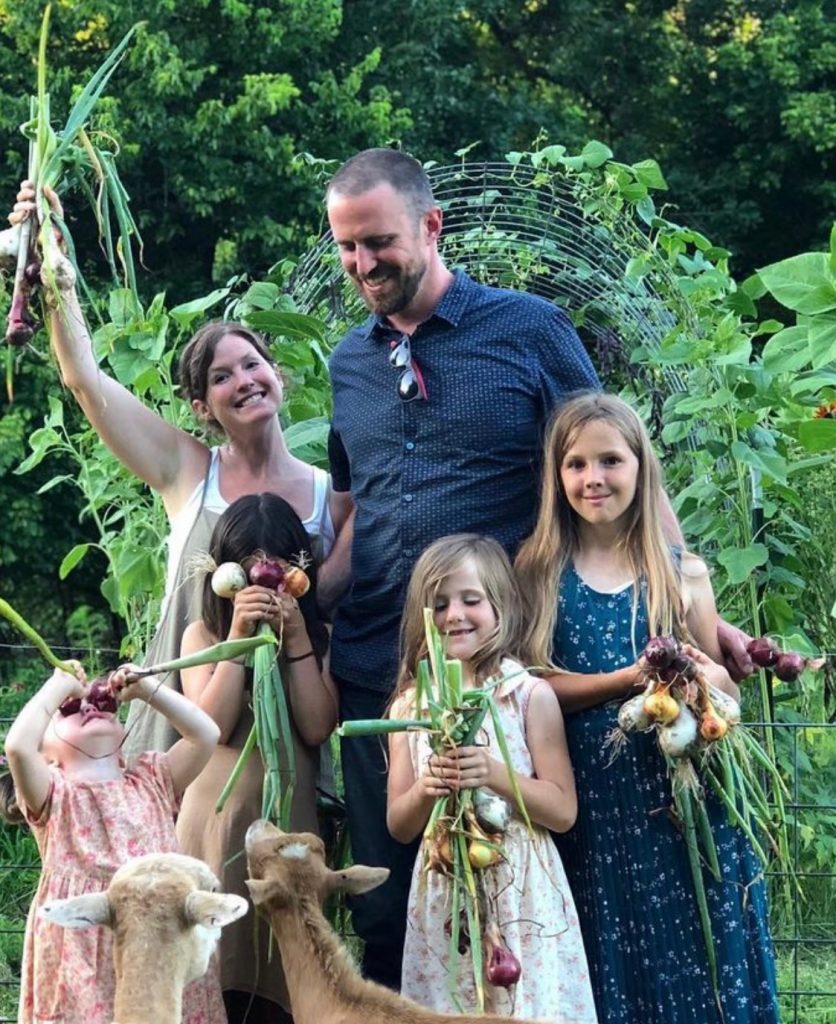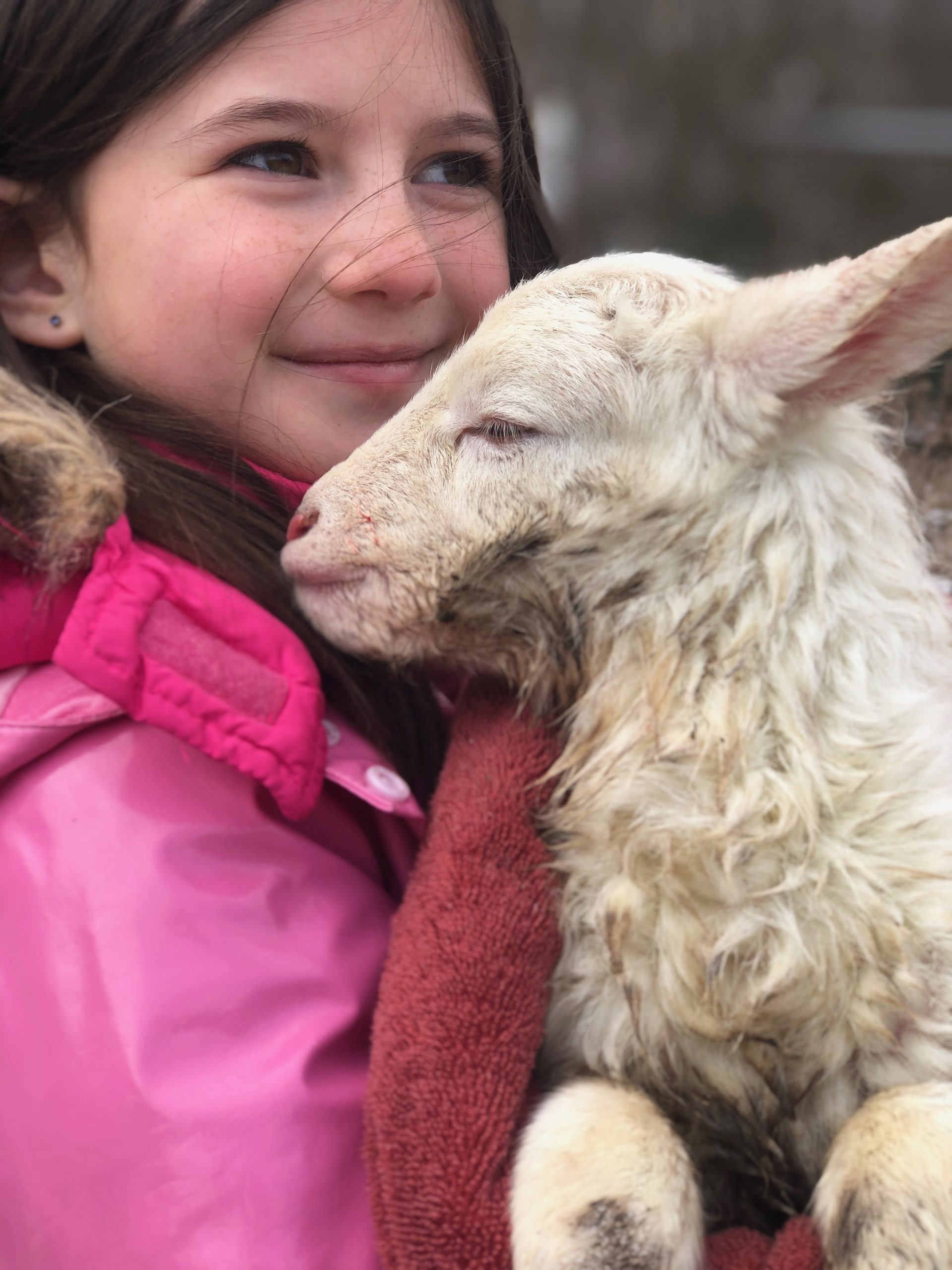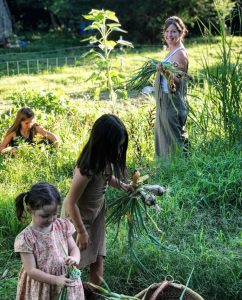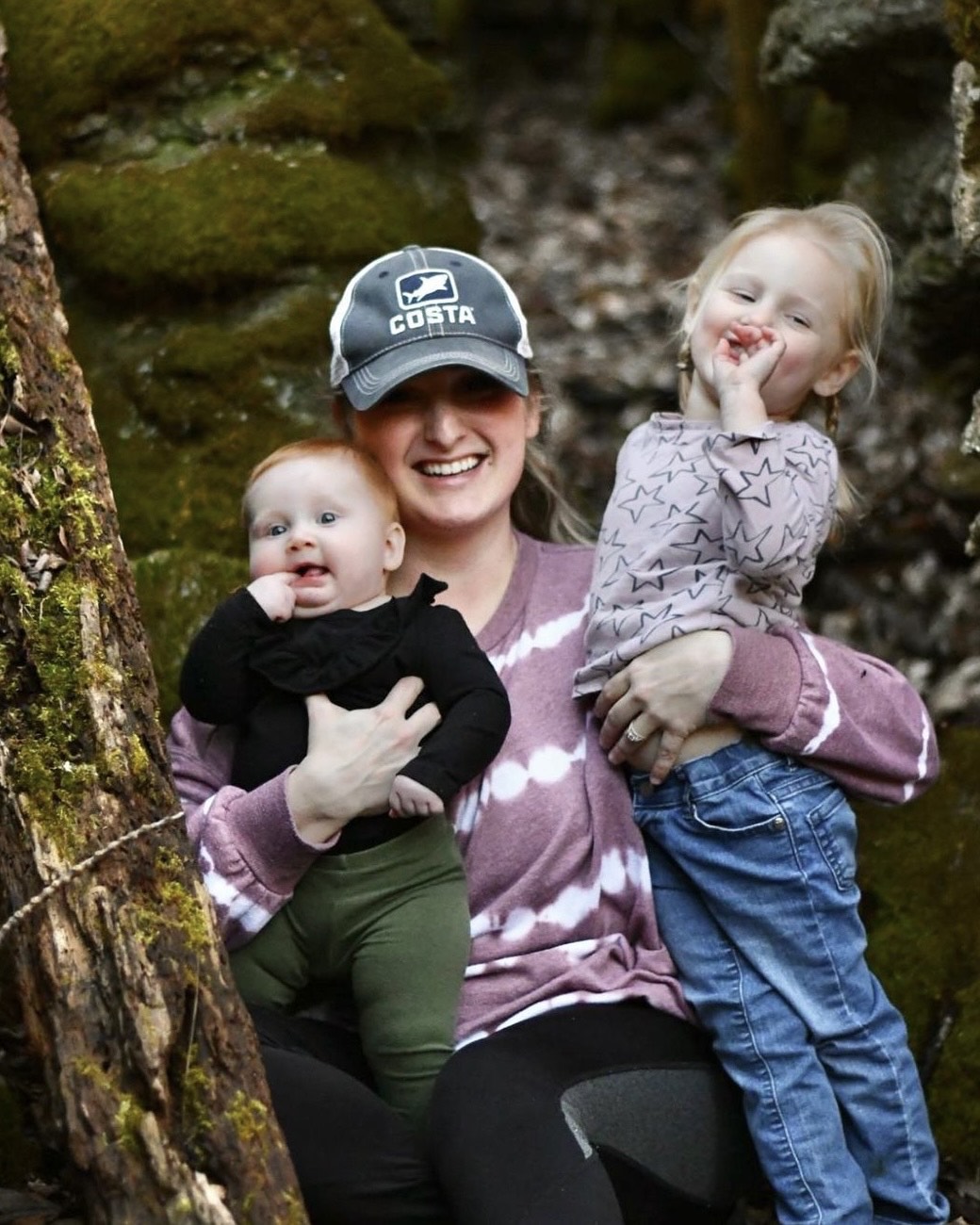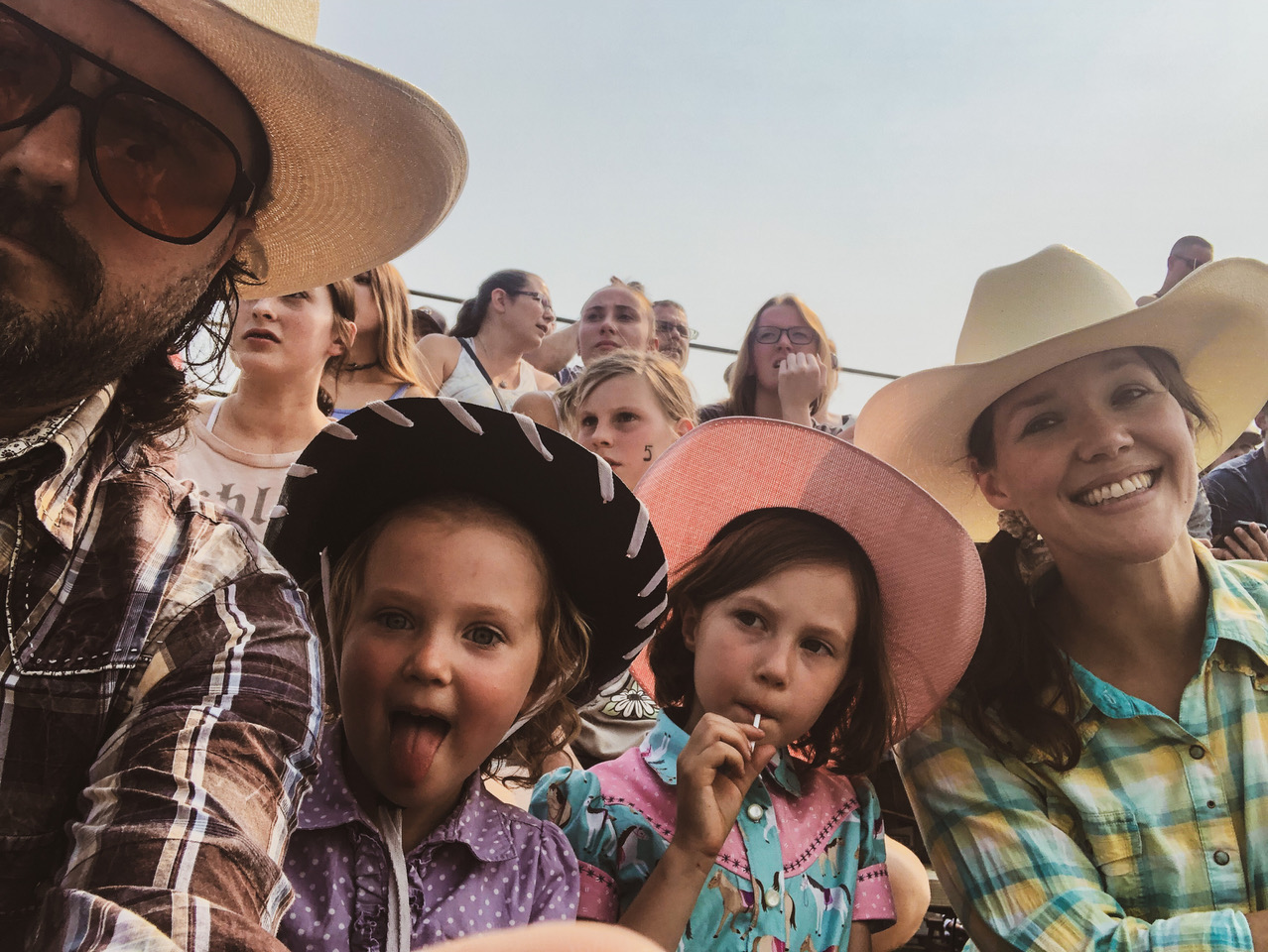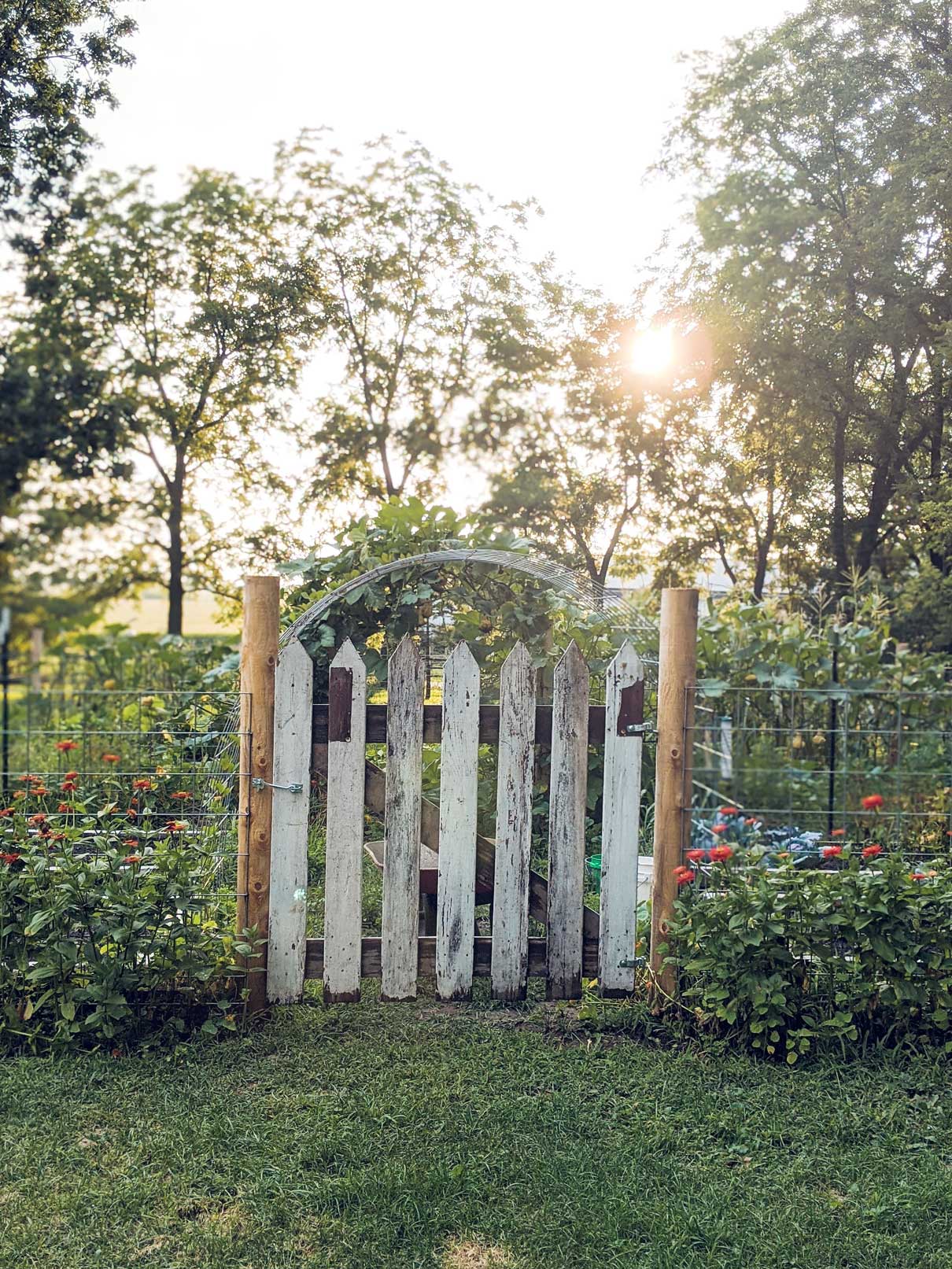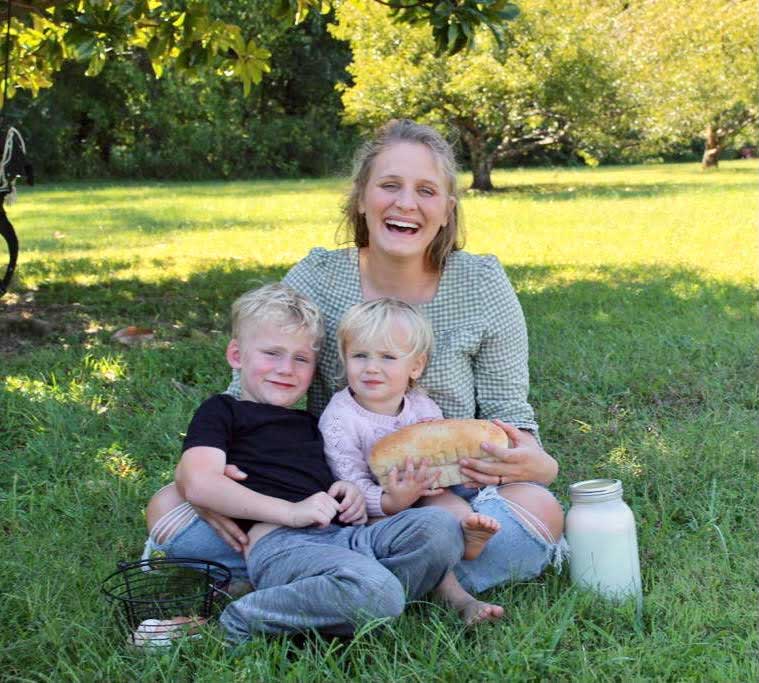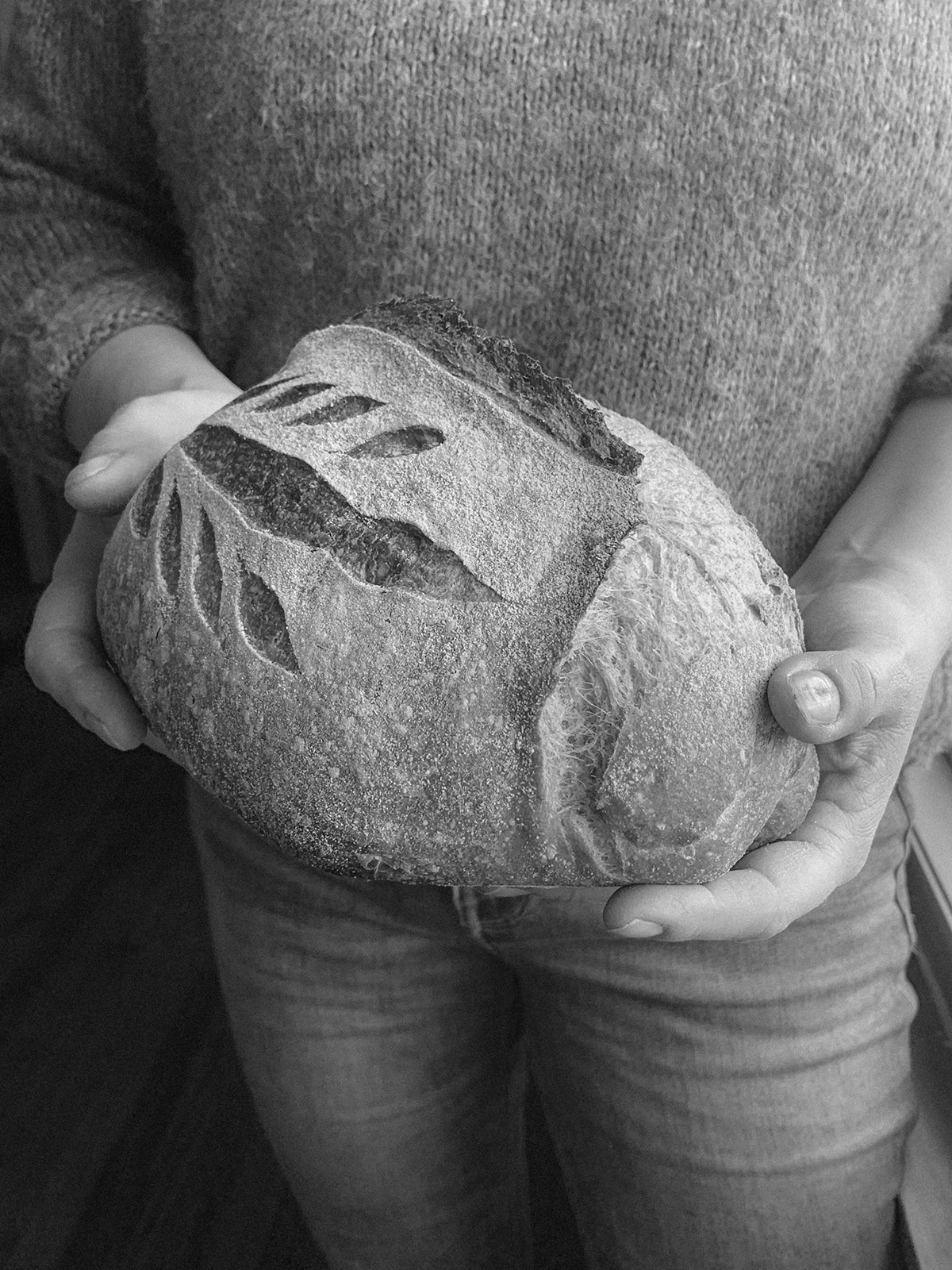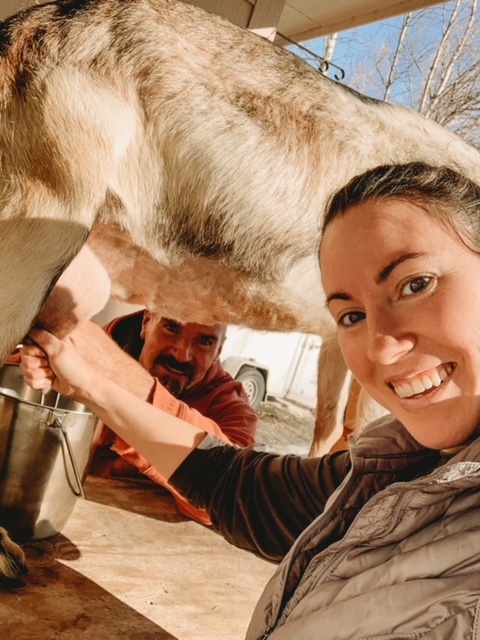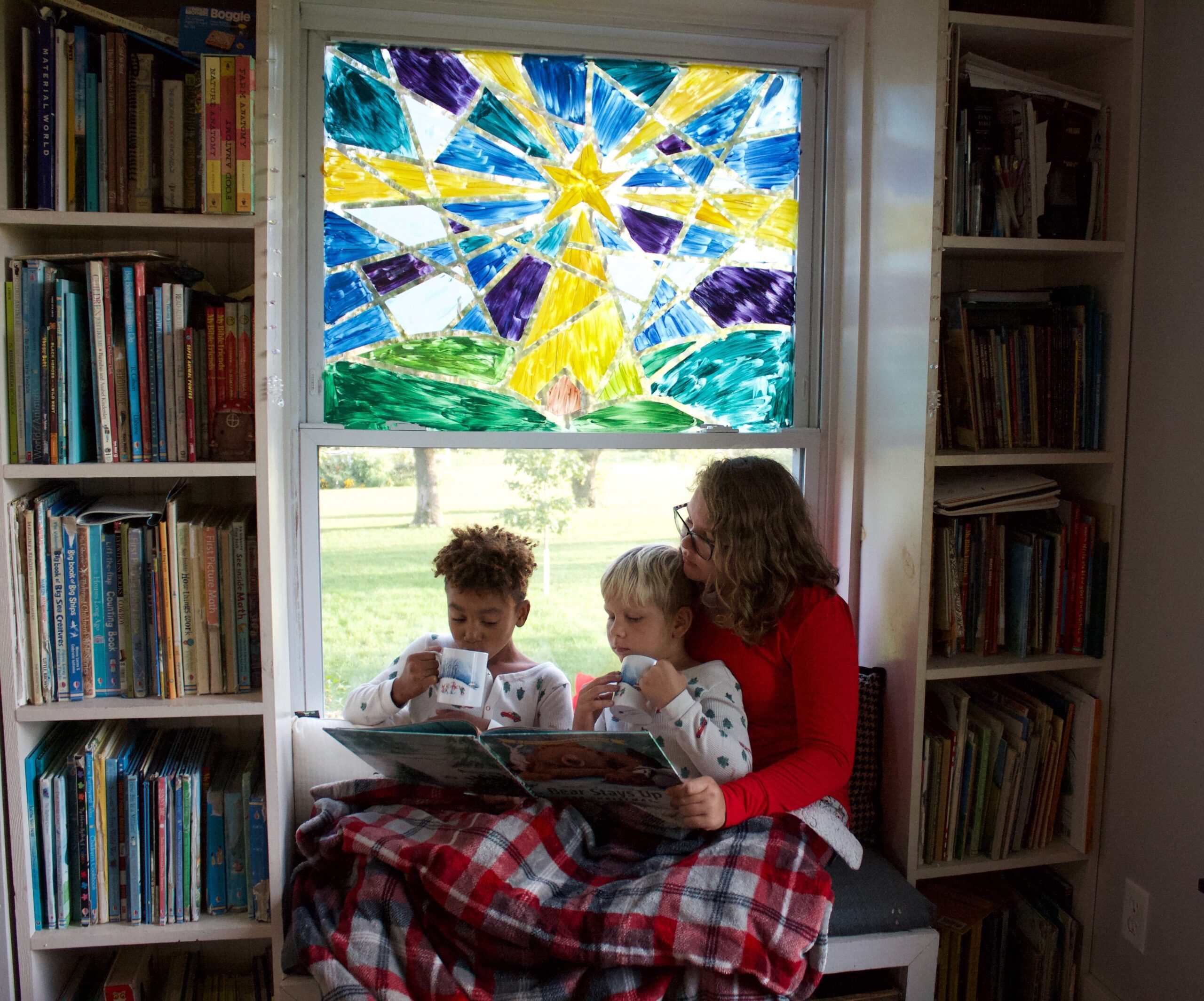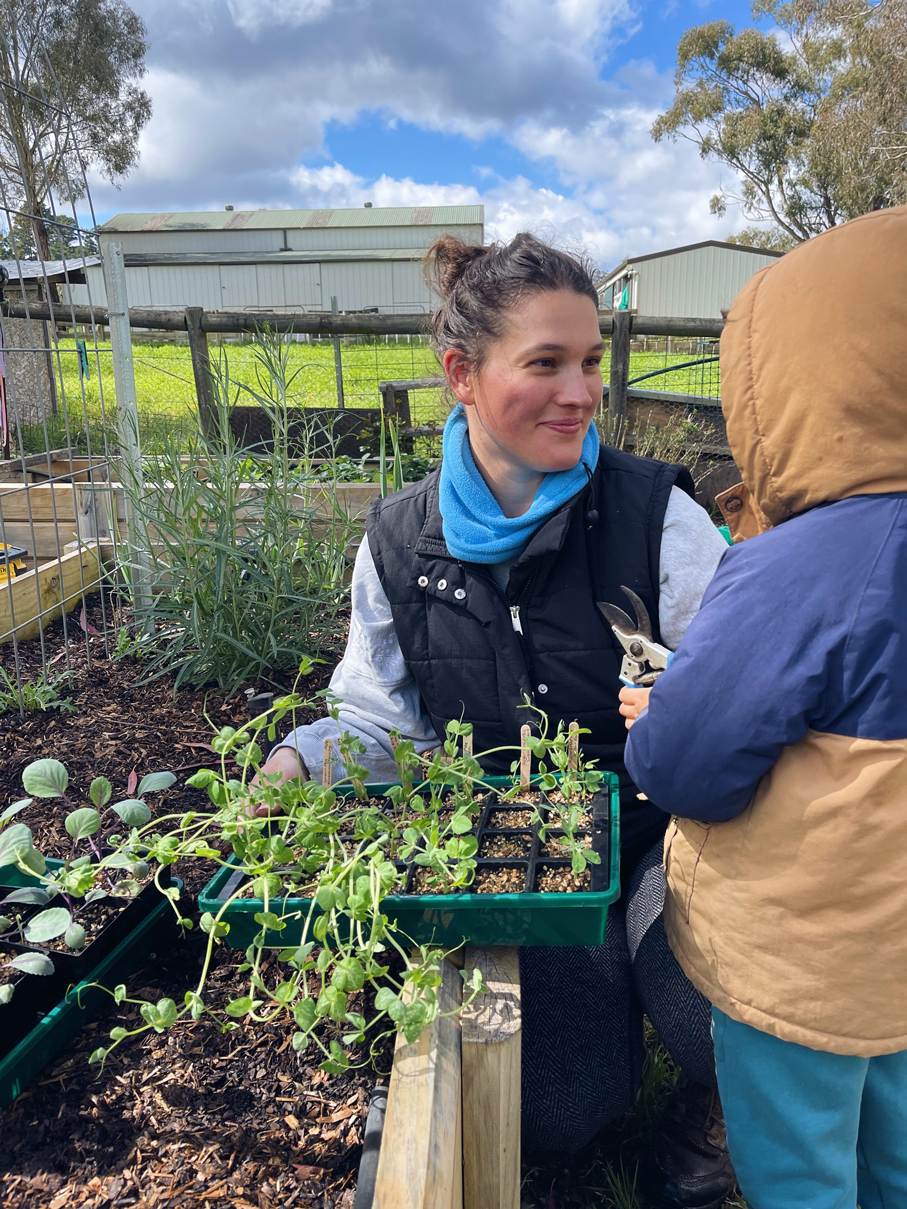The other day we drove past a confinement chicken house and I overheard a conversation from the back seat.
4 year old, “What is that big house?”
9 year old, “It is a chicken house.”
4 year old, “What’s a chicken house?”
9 year old, “It’s a place they take baby chicks, like, a million of them, and then they feed them all a lot of grain, and then, when they get too big to walk around anymore, they kill them for food.”
7 year old, “Yeah, remember that big truck we saw that had all the chickens packed in crates
last week?” (we live near a Tyson facility)
Silence.
4 year old, “Why don’t they just let them outside, like our chickens?”
9 year old “I don’t know. I think it’s because of money or something. They want to raise a lot of chicken at a time. But that’s where the grocery store chicken comes from.”
4 year old, “That is so sad. Those poor chickens. I wish they could live at our farm.”
7 year old, “Yeah. Our chickens are really lucky. They have a great life.”
Yes, yes they do. And that is the point. That is why we do what we do. My kids get it. Most kids don’t know the awful truth of factory and industrial farming because then parents would have to explain to their small child why mommy and daddy would support a system like that. Why as a nation would we feed our children food produced by a system that we felt the need to protect them from the truth of?
And to be clear: my children are all girls and they are all sensitive in their own way. They might be brought to tears by a baby bird that has fallen from a nest and died, and I have seen them chastise their friends for playing with insects, those are not toys, they tell them, they are living creatures. Don’t even try to squish a bug around them, they will be deeply offended and question your character.
My girls have a deep respect for the lives of all things, but they also grasp a fundamental truth: to live is to take life, it is natural, it is normal, it is widely accepted in many cultures. Americans are only confused by this because of their disconnect from the food they eat. Even though it would be super easy to buy food at the grocery store we try to produce our own because what is widely available is not in alignment with our values.
How can we tell our children to care for living creatures, and buy factory farmed meat? How can we tell them the environment is important, but buy vegetables produced under conditions that poison the soil? It is hypocritical. We started homesteading because we wanted the best quality of food for our health, we wanted food that was raised humanely and without chemicals.
That food was somewhat cost prohibitive for our large family, so we began producing it ourselves. As a species we impact the planet more through agriculture than any other way. Every time we raise our fork we are making a decision. Do we agree with the poisoning of the topsoil and the waterways? Do we agree with the mistreatment of animals on a massive scale?
Covering our eyes and saying “I just don’t want to see it” doesn’t make us less culpable. Sometimes people have to learn hard truths and make difficult decisions to be in alignment with their values.
